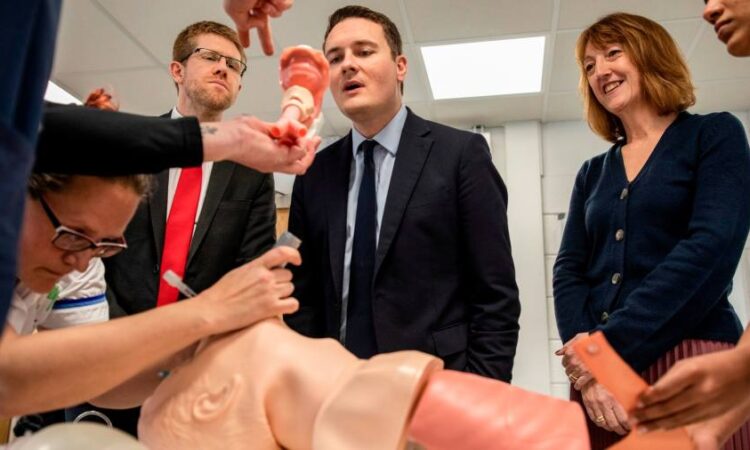
Private equity-run care homes will be stripped of public sector contracts by an incoming Labour government if they fail to meet quality and value-for-money standards, according to shadow health and social care secretary Wes Streeting.
Streeting said the sector’s regulator, the Care Quality Commission, would be given new powers to require state-funded providers to maintain a “safe” level of reserves to ensure financial stability.
The social care sector is under enormous pressure, exacerbated by the impact of the pandemic. Around one in 10 posts are vacant and a survey last year by Care England, an industry body, found that in the south-east almost half of providers had considered exiting the market in the past 12 months.
Care providers would need to demonstrate they paid “their fair share” of tax in the UK, Streeting said in an interview with the Financial Times, adding that companies would be expected to open their books for scrutiny.
“I want to make sure that everyone gets good quality care, and the taxpayers get good value for money and in too many cases, that’s not happening and I won’t stand for it,” he said.
If Labour wins the next general election, expected next year, providers would additionally be judged against a requirement to provide “fair” pay, conditions and training, Streeting added.
He declined to single out particular care home groups, saying he was “not going to get into the business of name and shaming just yet”. But he added it was evident from CQC reports where the poor-quality providers were.
“I’m giving them fair warning this far out from a general election to raise their game or they will not be able to do business with a Labour government.”
Larger providers have become an increasingly important part of the care home system. Private equity owns more than 10 per cent by value of the UK sector for older people, according to LaingBuisson, a business intelligence provider.
However, underlining the vulnerabilities this can create, two large private equity-backed providers have gone into administration in recent years: Southern Cross in 2011 and Four Seasons in 2019.
Streeting has taken a more pragmatic stance than some of his predecessors towards the role of the private sector, endorsing the use of private hospitals as a short-term measure to reduce NHS waiting lists.
“I don’t subscribe to the view that public equals good, private equals bad,” he said. “But where we see people taking the mick and, frankly, leeching money from the taxpayer as I think some private equity-owned care providers are, we’re going to clamp down on that.”

Speaking at Worcester university, where a new medical school is being built, Streeting criticised the government for failing to supply enough medical training places.
A Treasury cap on medical places means that Worcester, along with some other schools, currently receives no government funding for trainee doctors.
As a result, the NHS and a charity have clubbed together to fund places for 20 UK students at the university. International medical students will be charged an annual fee of about £45,000.
Streeting branded the lack of funding for domestic students as “crazy”, adding the government had threatened to fine universities for recruiting additional students beyond the capped number.
The Department for Education said Robert Halfon, higher education minister, had written to vice-chancellors earlier this year to remind them of the importance of respecting the cap on places but the possibility of fines had never been raised.
Streeting affirmed Labour’s commitment to doubling the number of medical school places and increasing nursing and midwifery clinical training places by 10,000 a year.
The party has also pledged to double the number of district nurses qualifying and train 5,000 more health visitors, at a cost of £1.6bn to be funded through the abolition of non-dom tax status.
He threw down a pre-Budget gauntlet to chancellor Jeremy Hunt who, when chair of the health select committee, had lauded Labour’s workforce plan.
“He said that smart governments should nick the best ideas of their opponents. Well, come on Jeremy, you know this is the right policy, we’ve even shown you how you can fund it,” he said.
Treatment wait time targets, such as a four-hour maximum wait to be seen in emergency departments, have been missed by record margins in recent years.
A Labour government would “put in place a credible but rapid timeline for us to achieve those targets which were put in place for reasons of patient safety”, Streeting said.
He disclosed that Labour was also planning to introduce “an ambitious but achievable 10-year target or series of targets” based on outcomes rather than treatment times. It was consulting scientific and medical experts on what they should be.
A priority for the party is tackling health inequalities and their root causes. Reducing the incidence of preventable chronic disease was “absolutely key to the survival of the NHS model and system”, he said.
The Department of Health and Social Care was contacted for comment.






